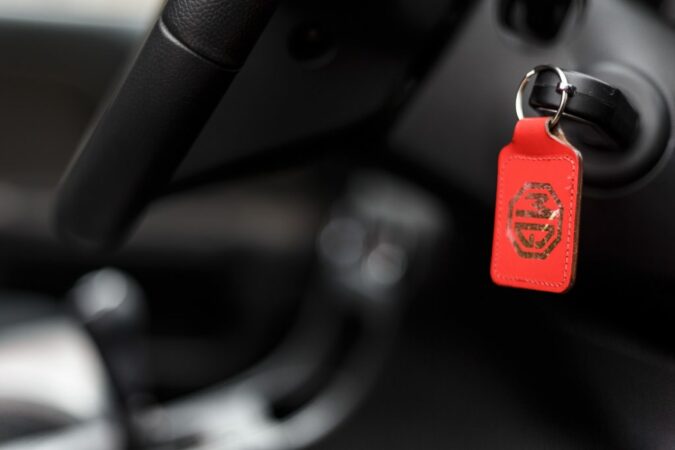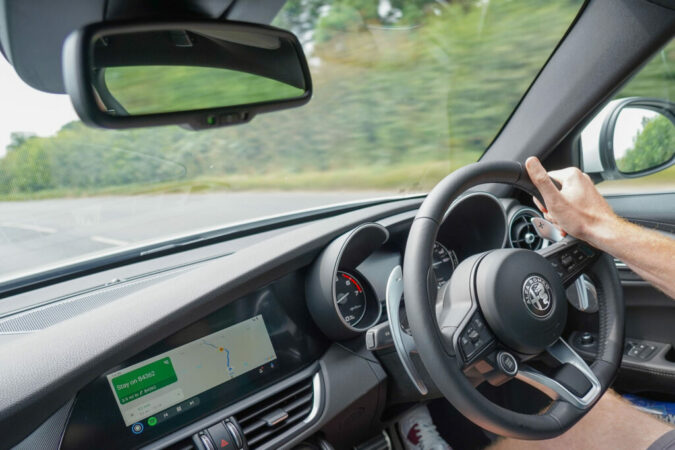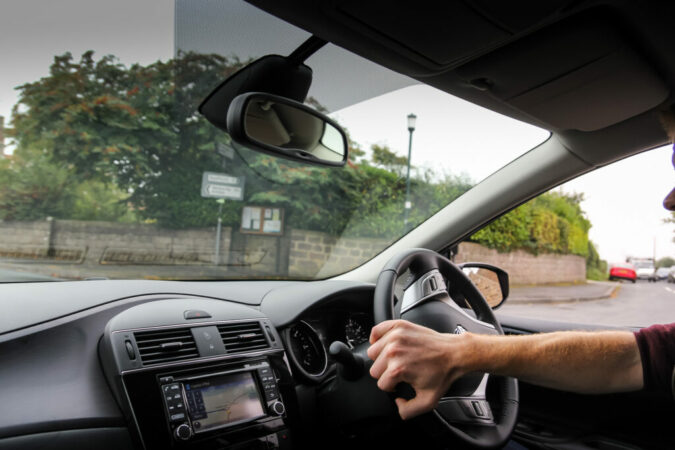Have you started hearing some weird hissing sound in car when you drive? Well, if that is the case, then you are at the right place because there will be quite a lot to cover on this topic and we are going to elaborate on everything you need to know when it comes to these noises.
- What Is A Hissing Sound?
- Situations
- Causes
- How To Diagnose This?
- Cost To Fix
- Can You Drive Like This?
- Conclusion
- FAQs
Doing your own research before you go to a shop and spend a ton of money on expensive mechanics should be one of your top priorities. Why we are saying this? Well, because it is true. Mechanics are very expensive and those few dishonest types will also try to rip you off sometimes. Either because they don’t know what is causing the problem or on purpose.
This is why you need to learn more about your problem before you head up to the mechanic’s shop and get your car sorted out. For example, knowing the possible causes will make it more difficult for someone to fool you out on a possible repair. And trust me, whenever there is a hissing sound in car, there are a lot of ways in which you can get scammed. This is why we are here to help you sort out this problem.
First, we are going to cover the hissing sound in car and we will cover the situations where the hissing sound appears. Then we will cover the causes of why there are hissing sounds, as well as how to diagnose this problem the right way and the costs involved in this type of work. So, if you want to learn more, follow along.
Hissing Sound From Car
Now before we dive into more complex topics, let’s take a look at the problem and learn more about what is hissing sound in car. This is really important, especially for people who are not into cars and want to learn more about how this sound is represented. So, what is this hissing sound?
Well, a hissing sound in general is an audible representation of a problem in a car. A lot of people are driving their cars for a really long time and they know when the car is working well and whenever it doesn’t work quite well.
There are different types of sounds like clunking, whining, ticking, and grinding, but what about hissing how hissing is represented?
You probably noticed how snakes produce noises when they want to attack, they start hissing in order to scare the animal or the person that is affecting their security. They create a noise that resembles s-s-s-s-s-s-s. And that’s what hissing is in general.
This sound is usually created when you have a line full of gas that is pressurized and has a small pinhole. This creates that notable hissing noise and scares a lot of people who drive their cars.
But the most important thing is that there is not a snake in your car, the problem is most likely caused by something different inside the engine or the surrounding areas. But more on that, we are going to elaborate later on when we will discuss the causes for the hissing sound in car. Now let’s move on and start discussing more about the situations whenever you will notice this sound in your vehicle.
Situations When There Is Hissing Sound In Car
So, we have covered the hissing sound in car and how this sound is represented. We think that now it is time to move on and learn more about the situations when a driver will experience some of these sounds.
Understanding the situation can really help you out when it comes to determining the root cause of the problem and sorting out the problem accordingly. So, we are going to help you out learn precisely that. If you want to learn more follow along.
1. Hissing Sound At Startup
The first situation where people often experience a hissing sound in car is at startup. Imagine that you need to go to work in the early morning and you do a cold start on the car.
The car started to produce noises coming from underneath the hood. This situation can alarm a lot of people but soon after the engine warms up the sound smoothens up a little bit. Still, it is present but at a smaller decibel level.
The important thing in this situation is that you shouldn’t panic. Later on in the article, we are going to elaborate more on how this is diagnosed the right way.
2. Hissing Sound At Idle
The second situation when you can experience a hissing sound in car is when the car idles.
Let’s say that you came to a stop light and you are waiting and the car from underneath the hood starts hissing and you get really alerted because of this problem.
This is another representation of a problem. And also, here you shouldn’t panic because this is a problem often caused by an air leak in one of the systems. Later on, we are going to explain where this leak could come from precisely. Now let’s move on to the last situation whenever there is a hissing sound in car.
3. Hissing Noise When Accelerating
And the last situation when you have a hissing sound in car is when you are accelerating. This is frankly the most common situation when you experience hissing noises. So, why is this happening with your car?
Well, this is the case because you press the foot on the throttle and by doing this you increase the pressure in the systems. So, by doing this, you basically allow more air and other gases to flow and this, later on, exacerbates the problem and the noises are getting stronger and stronger.
This is why whenever you hear hissing noises in the car it is important to act quickly. But what to do in these situations? What are the prime causes of these hissing sounds? Let’s elaborate more on the topic in the following chapters and learn more about what could be causing this problem.
Hissing Sound Causes
Now let’s move on and take a look a the causes for the hissing sound in car. What could be causing this sound in your car?
Knowing the causes will really going to help you out when it comes to diagnosing the problem. This is why in the following chapters, we are going to elaborate on all of the possibilities in great detail so you understand a bit better about the potential reasons why is this the case. So, let’s get into it.
1. A/C System Causes Hissing Sound In Car
Now let’s discuss the most common cause for a hissing sound in car and car AC making a hissing noise. And this is the AC system. So, why is this the case, why the AC is making a hissing sound?
Well, if you didn’t know, this AC system in your car is quite complex with a lot of plumbing on it. There are a ton of AC system hoses that go inside the engine bay.
Sometimes these hoses can get damaged and start to leak refrigerant. Or there could be some of the fittings that leak the refrigerant.
On top of this, the AC compressor, as well as the evaporator and condenser can fail and leak and cause this hissing sound. These are usually aluminum parts. And aluminum is pretty soft and easy to crack if there is too much pressure in the system. Or if the car was in an accident and the condenser started hissing, or some of the lines got bent and started leaking and the system is hissing.
Overall, a total nightmare to fix if you are asking me. Luckily, people have developed methods of how you can track these refrigerant leaks and find them in a matter of minutes. Later on, in this article, we are going to explain how this is done on a car for all of the possible leaks, not only the A/C system leaks but all of the leaks. And you definitely don’t want to miss that.
2. Vacuum Leaks Cause Hissing Sound In Car
The next highly probable cause for the hissing sound in car is the problem with vacuum leaks. If you didn’t know, there are a lot of vacuum lines that go into different parts of your engine. There is the PCV system, EGR system on some cars, and EVAP system. All these systems require a vacuum in order to work well.
Whenever there is even a tiny hole in these rubber hoses, you will experience some symptoms like misfires or possible drop in performance. Not to mention that hissing sound because the hoses are leaking air. So, these systems are the most important things that you need to check when it comes to the diagnostics process and figuring out the problem. But more on that later on when we are going to discuss the diagnostics.
Another place that is very prone to creating vacuum leaks is the intake manifold. If you don’t know, the intake manifold is the big plastic box that is located on top of the engine. In the past, these components were made out of steel and were really heavy. Nowadays they are made out of plastic and they are prone to cracking on some engines. Especially when they get really old.
Also, another failure point on the intake manifold is the rubber seals that make them seal with the cylinder heads. If one of these seals fails and will fail since they are all made out of rubber, you might notice a hissing sound in car. But how you can diagnose these problems? Well, more on that we are going to elaborate later on in the article. Now let’s resume with the hissing sound causes.
3. Cracked Exhaust Manifolds
Now let’s move on to the next possible cause for the hissing sound in car. And this is connected to the exhaust manifolds. But what are the exhaust manifolds?
Well, an exhaust manifold is a component that is located on the side of the engine. This manifold basically collects the exhaust gases from the exhaust ports and then redirects them to the exhaust pipe.
This component has a really important job and if it fails it could start creating problems like performance loss, misfires, and hissing sounds.
Exhaust manifolds are usually made out of cast iron. Some of them suffer from poor welding and since there are a lot of heating and cooling cycles they start to crack on the welds.
So, whenever there is even a tiny crack, they will start to leak exhaust gases. When this happens, you will start noticing the odor of exhaust fumes inside the cabin, as well as the hissing sound in car.
So, if you notice something like this, it is definitely worth checking the exhaust manifolds and making sure that they are in tip-top shape and they do not have any cracking on them. And even if they don’t have cracks, you are still needed to address another possibility when it comes to the hissing sound in car and more on that we are going to cover next.
4. Cracked Exhaust Manifold Bolts
Another very common cause for the hissing sound in car is the broken exhaust manifold bolts. So, what are the cracked exhaust manifold bolts?
Well, each exhaust manifold has a couple of bolts that are holding this metal piece to the engine exhaust ports.
And these bolts are exposed to tremendous heat. There are countless cycles of heating up and cooling down. Not to mention the salt on the roads that is thrown in winter. The salt basically annihilates the bolts and corrodes them completely.
So, when the bolts stop looking like bolts and resemble a scrap of rust. It means that you have a big problem with the exhaust manifolds.
There could be leaks developing and once the leaks started to develop, you are basically left with a hissing sound in car. There could also be exhaust fumes inside of the cabin and you could even get carbon monoxide poisoning.
This is why it is really important that you address these problems accordingly. And later on, we are going to explain how when we are going to cover the diagnostics process. For now, let’s take a look at the last probable cause for the hissing sound from car.
5. Other Leaks In The Exhaust System
Another very common cause for hissing sound in car is other exhaust leaks. As you probably know, the exhaust is quite long.
The exhaust system starts with the exhaust manifold and goes to the rear of the car. And between the end of the exhaust and the manifolds, you have clamps and fittings.
There is the manifold, mid-muffler, and rear muffler. And all of these components are connected with bolts. And what can happen is that these bolts can fail and cause numerous issues. Including a hissing sound as well as a strong odor of carbon monoxide gases inside the cabin. You can learn more in our guide on what is a muffler on a car.
So, if you notice hissing that is coming from underneath the car, it is important that you act quickly and make sure that you diagnose the problem the right way. And in the following chapters, we are going to cover how to track these hissing noises and diagnose the problems and sort them accordingly. So, if you want to learn more follow along.
How To Diagnose This Hissing Sound
Now let’s get to business and start learning about how you can diagnose a hissing sound in car and solve this problem quickly and effectively. What you can do in these situations and sort the issue out?
The first thing that you need to do is to track the sound and learn where it comes from. This can be rather difficult since these noises can mislead you and often confuse you. So, you will need to go through each of these causes.
First, thing first you need to make sure that the sound does not come when the AC is working. If the AC is working and there is a hissing sound and when the AC is turned off there is no hissing sound, then this problem is highly likely caused by the A/C system.
If everything is good with the AC, you need to move on to other probabilities, namely exhaust leaks. Turn on your flashlight and check the gaps between the manifolds and the engine and see if there are carbon deposits on the side of the engine, also check for cracked or damaged bolts, check if there are cracks on the exhaust manifold as well as other fittings in the system.
Another dead giveaway when it comes to this is to check for any smells. An exhaust leak will often turn the engine all black with carbon deposits and the smell of fumes in the cabin will get really strong.
And the last thing to check is vacuum leaks, for this, you will need to get a smoke machine. An improvised or professional one, it doesn’t matter. Tracking leaks is rather a complex process and smoke does this thing a lot easier.
Cost To Fix Hissing Sound In Car
So, what about to cost to fix the hissing sound in car? How much money can you expect for you to pay in order to sort out this problem with your car?
Well, on average, it shouldn’t cost you more than $500 to fix this problem on your car or truck. Mainly because the problem is not often created by some really expensive component.
Except in the case when the AC compressor can fail and start to create noises. In this situation, you can expect to pay more than $500. On average a new compressor could cost you up to $1,500 or more. So, pray that this hissing sound in car is not created by the compressor.
Can I Keep Driving With This Hissing Sound
Driving with a hissing sound is not something that we would recommend. If the AC is the problem, then driving like this is possible if you turn it off.
If the problem is caused by an exhaust leak, then this is serious. Mainly because it can affect the work of the engine and also allow gases to enter the cabin and harm your health.
Vacuum leaks on the engine are also quite serious because these leaks often can ruin the performance of the engine and cause it to misfire and lose power and make it run rich.
And when this situation happens, your catalytic converter, spark plugs, and coils can take the toll and you could end up paying thousands of dollars. This is why we would advise that you sort out the problem with the hissing sound on time before it becomes too serious and potentially does something bad to your engine.
Conclusion
In this article, we have covered quite a bit when it comes to the hissing sound in car. First, we learned what this problem is all about and when it can occur.
Once we covered the situations, then we covered the main causes for the issue. Then we covered how you can diagnose it and the cost involved in fixing the issue. Lastly, we learned if you can drive a car like this that is producing a hissing sound.
Frequently Asked Questions
Now let’s answer some frequently asked questions.
Why Is My AC Making A Hissing Noise
This is often the case because of the refrigerant entering the expansion valve. Still, if the hissing sound keeps on all the time, this is often caused by a refrigerant leak. So, you will need to spray your AC system with UV paint and see where the leak comes from.
How To Fix Hissing Sound In Car AC
You first need to track the leak. If the car hisses only when the AC kicks in then this is not a problem and the refrigerant starts moving. If the car hisses all the time, then you have a problem with AC refrigerant leaks.
Why Does My Car Click When I Turn
When a car starts to produce a clicking noise, the chance of a bad CV joint is 99% of the cases. So, this is the first thing that you need to address in order to tackle the issue.
Why Is My Car Squealing
A car engine can start squealing when the drive belt is becoming loose. This is the belt that is powering the accessories inside of the engine. So, when the belt fails, you will start experiencing squealing noises.
Why Is My Car Squeaking
When it comes to squeaking, there could be a number of options. The first thing that comes to our mind is the brakes. Worn-out brake pads or rotors tend to squeak and produce noises. There are also other squeaks concerning the serpentine belt, alternator, and other accessories inside the engine compartment.
Why Does My Engine Sound So Loud After Rain
Probably because the high humidity in the air. Often when there is rain, there is high humidity in the air and engines work differently in highly humid environments and situations when it’s dry outside.




